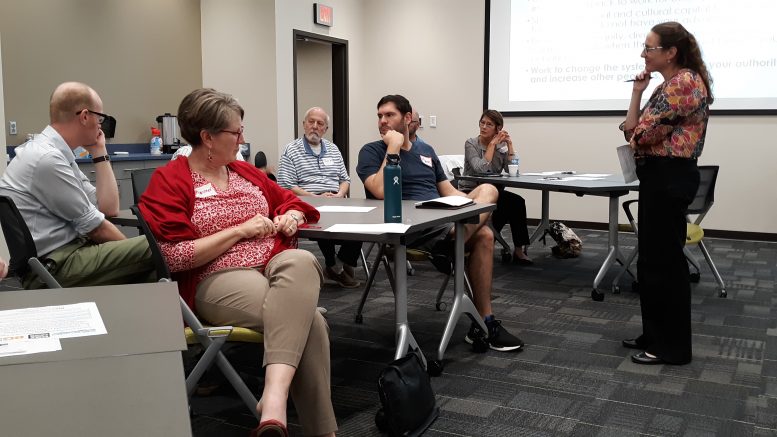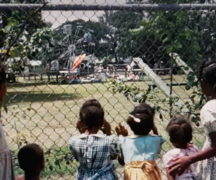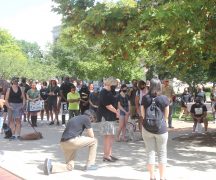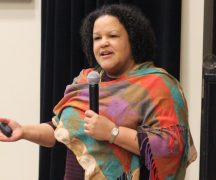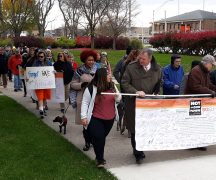By JAN LARSON McLAUGHLIN
BG Independent News
Just because white people don’t see racism in Bowling Green doesn’t mean it isn’t real.
Living in a “white bubble” means many white people don’t see the advantages that automatically come with their race.
White men don’t have to avoid using ATMs after dark. And white women don’t have to worry about being monitored as they shop in stores.
“Most people of color don’t have the privilege of living in a bubble,” said Dr. Jolie A. Sheffer, who presented a program called “Doing Diversity While Being White” Thursday evening as part of Not In Our Town’s Community Conversation Series.
Sheffer, director of the Institute for the Study of Culture and Society at BGSU, explained that many people find it difficult to face up to the fact that racism, sexism and other hostilities exist.
“Recognize that just because you haven’t experienced something doesn’t mean it isn’t happening,” she said.
The 20 people in the audience attended for different reasons. Some were worried about the direction in the nation, and some wanted to make Bowling Green more welcoming.
“I think we have forgotten some of the values we were founded on,” one person said.
“You’d like to think we made progress,” but that seems to be slipping away, another person said.
One woman said she feels “embarrassed to be white,” and many wanted to learn how to respond to racism since being silent is being complicit.
There are no “magic words” to use in response to racist behaviors, Sheffer said. But it is important to intervene and be an active bystander. Making people uncomfortable about their racist words or actions may stop them in the future.
“This stuff is messy,” she said.
Sheffer suggested that people use whatever privilege they have – seniority, race, class – to be a voice for equity and diversity.
That means speaking up rather than remaining uncomfortably quiet in the face of “isms.”
“We know these people. They sit at our Thanksgiving tables. We have doughnuts with them at work,” she said.
“They might feel less emboldened to spout that stuff,” if someone speaks up rather than remains silent, she said. “We can’t get rid of racism, but I’d rather it be back under a rock” rather than socially acceptable.
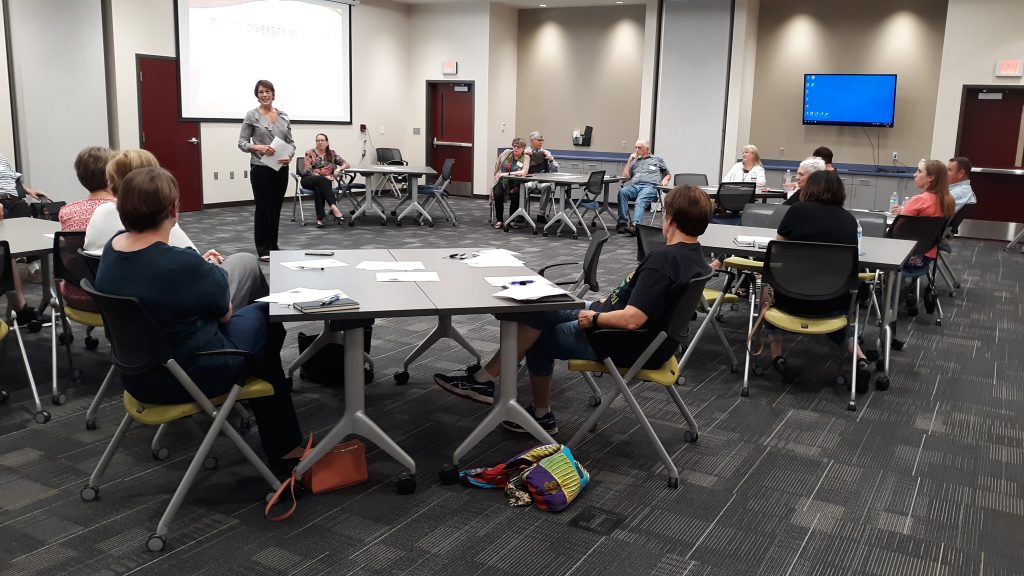
Sheffer urged her audience to leverage some of their authority for those with less privilege.
“You can be the voice for equity, even if it doesn’t directly affect you,” she said.
She cautioned white people against putting the burden on people of color to explain their experiences.
“We need to distribute some of the burden,” she said. “People of color disproportionately are expected to educate people around them. Those folks are being burned out about having to explain it to the rest of us.”
Sheffer explained that offering “equality” is not the same as providing equity. For communities, it’s not enough to say they are welcoming – they have to follow up.
“We want more diverse communities, but once they get there, they are on their own,” she said.
The problems with racism go far deeper than white nationalists who openly spew their hatred, she said.
“They’re not the biggest problem,” she said. It’s not just the people in sheets and swastikas spray painted on homes. “Racism is all this other stuff underneath, too,” like qualified people being passed over for promotions.
Sheffer talked about other issues like economic inequities which put families at risk, lack of accommodations for people with physical disabilities, religious insensitivity, hostility toward gender variations, and unfriendly policies toward families.
“The world is changing and it’s up to us to change with it,” she said.
Sheffer suggested that people in positions of privilege need to listen and not be defensive. Believe people when they share their experiences, and think hard before calling the police to report a black man walking in the neighborhood.
The next Not In Our Town community conversation will be Oct. 24, from 7 to 9 p.m., on recognizing and dealing with unconscious bias, at the Wood County Board of Developmental Disabilities conference room, 1921 E. Gypsy Lane Road, Bowling Green.

